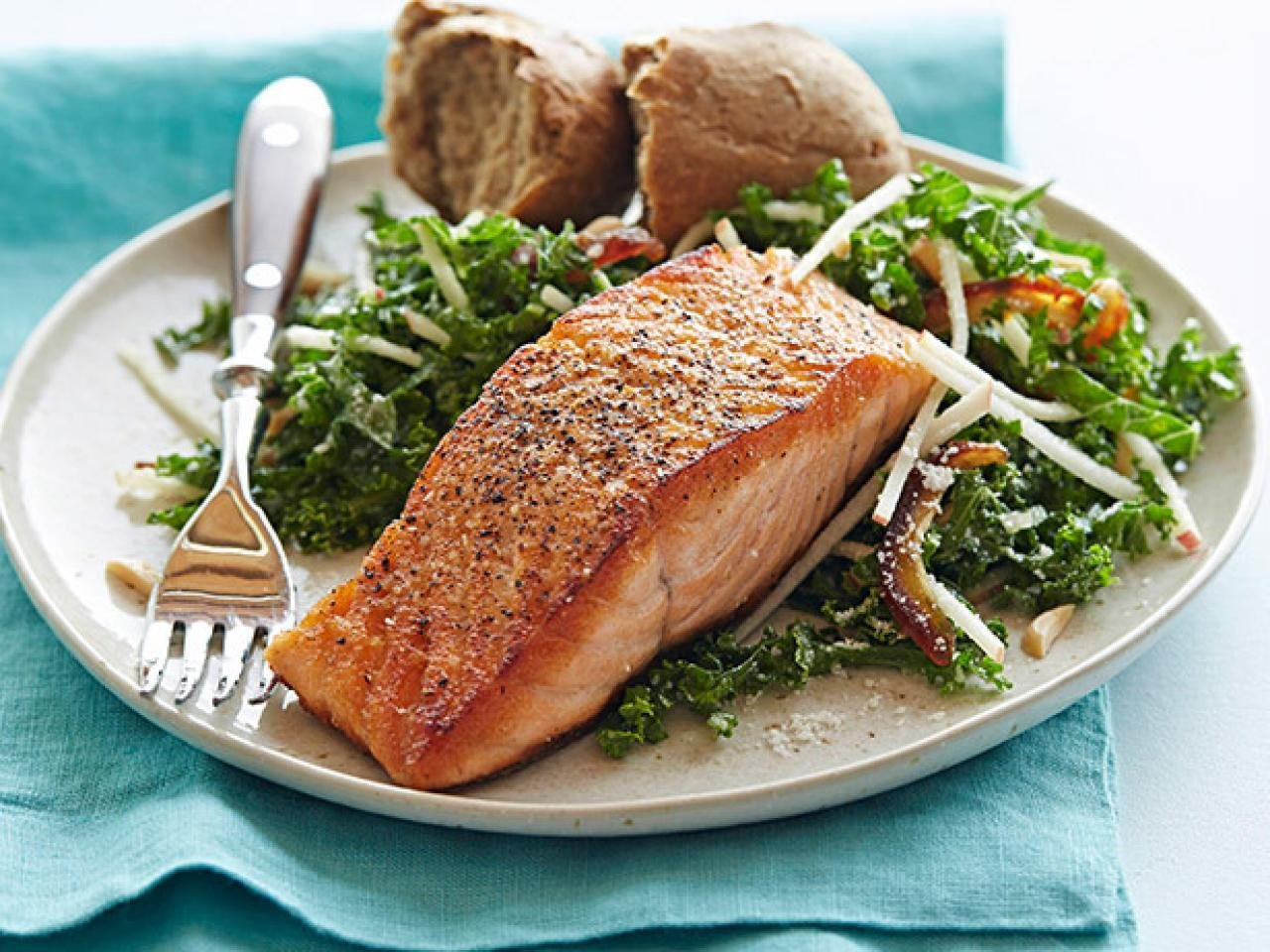Fresh, healthy meals are more than just a trend—they’re a key part of a balanced lifestyle. Incorporating these meals into your daily routine can lead to improved health, better energy levels, and a more enjoyable dining experience. Fresh healthy meals typically emphasize whole, unprocessed ingredients that are rich in essential nutrients. These meals often include a variety of fruits, vegetables, lean proteins, and whole grains. By focusing on freshness and nutrition, you can create meals that are not only delicious but also supportive of overall well-being. Whether you’re looking to improve your diet, maintain a healthy weight, or simply enjoy tasty food, fresh healthy meals offer a straightforward path to achieving these goals. Let’s explore the benefits of fresh, healthy meals and learn how to prepare them easily and efficiently.
Benefits of Fresh Healthy Meals
Nutritional Advantages
Fresh healthy meals are packed with nutrients that your body needs to function optimally. Unlike processed foods, which often contain added sugars, unhealthy fats, and preservatives, fresh ingredients retain their natural vitamins and minerals. For example, fruits and vegetables provide essential vitamins like A and C, which support immune function and skin health. Lean proteins like chicken and fish offer amino acids crucial for muscle repair and growth. Whole grains, such as quinoa and brown rice, provide fiber, which aids digestion and helps maintain stable blood sugar levels. Eating a variety of these fresh foods ensures that you get a broad spectrum of nutrients that contribute to overall health and prevent deficiencies.
Impact on Overall Health and Wellness
Incorporating fresh, healthy meals into your diet can significantly impact your overall health and wellness. Fresh ingredients are often lower in unhealthy fats and sodium compared to processed foods, which can help reduce the risk of chronic diseases like heart disease, diabetes, and hypertension. Additionally, a diet rich in fresh fruits and vegetables supports a healthy digestive system, boosts your immune system, and promotes healthy skin. Regularly consuming these meals can also improve mental health by enhancing mood and cognitive function, as many nutrients are linked to brain health. Overall, fresh, healthy meals contribute to a balanced lifestyle and long-term wellness.
Benefits for Energy Levels and Mental Clarity
Eating fresh, healthy meals can have a noticeable effect on your energy levels and mental clarity. Whole foods, rich in complex carbohydrates and healthy fats, provide a steady release of energy throughout the day, unlike processed foods that can lead to energy crashes. For instance, whole grains and nuts offer sustained energy, keeping you alert and focused. Additionally, the vitamins and minerals found in fresh produce support brain function and cognitive performance. Nutrients such as omega-3 fatty acids in fish and antioxidants in berries can improve concentration and memory. By choosing fresh, nutrient-dense foods, you can maintain high energy levels and mental clarity throughout the day.
Key Ingredients for Fresh Healthy Meals
Seasonal Fruits and Vegetables
Incorporating seasonal fruits and vegetables into your meals not only enhances flavor but also ensures that you’re getting the freshest and most nutrient-dense options available. Seasonal produce is often harvested at its peak, which means it’s richer in flavor and nutrients. For example, spring is a great time for leafy greens like spinach and asparagus, while fall brings a bounty of squash and apples. Eating seasonally can also be more cost-effective, as these items are often more affordable and readily available. By choosing seasonal fruits and vegetables, you can enjoy a diverse range of fresh, healthy options throughout the year.
Lean Proteins (Chicken, Fish, Legumes)
Lean proteins are a crucial component of fresh, healthy meals. They provide essential amino acids that support muscle growth, repair, and overall bodily functions. Chicken and fish are excellent sources of lean protein, as they are lower in fat compared to red meats. Fish, in particular, offers additional health benefits due to its omega-3 fatty acids, which support heart health. Legumes, such as beans and lentils, are another great source of protein, especially for those following a plant-based diet. They are also rich in fiber, which aids digestion and helps maintain stable blood sugar levels. Including a variety of these lean proteins in your meals ensures that you get the necessary nutrients for a balanced diet.
Whole Grains and Healthy Fats
Whole grains and healthy fats play a significant role in Fresh Healthy Meals by providing essential nutrients and maintaining overall health. Whole grains, such as quinoa, brown rice, and oats, are rich in fiber, vitamins, and minerals that support digestive health and stabilize blood sugar levels. Healthy fats, found in sources like avocados, nuts, and olive oil, are important for brain function and heart health. These fats help to absorb fat-soluble vitamins and provide a source of sustained energy. By incorporating a variety of whole grains and healthy fats into your meals, you can enjoy a balanced diet that supports overall well-being.
Herbs and Spices for Flavor
Herbs and spices are essential for adding flavor to fresh, healthy meals without relying on excessive salt or sugar. Fresh herbs like basil, cilantro, and parsley can enhance the taste of dishes while providing additional nutrients and antioxidants. Spices such as turmeric, cumin, and cinnamon not only add depth of flavor but also offer health benefits like anti-inflammatory properties and improved digestion. Using a variety of herbs and spices can make healthy meal more enjoyable and flavorful, helping you to stick to a nutritious eating plan. Experimenting with different combinations can also keep your meals interesting and diverse.
Easy Recipes for Fresh Healthy Meals
Breakfast: Fruit Smoothie Bowl
A fruit smoothie bowl is a quick and nutritious breakfast option that’s both delicious and versatile. To make one, blend together a handful of your favorite fruits, such as bananas, berries, and mango, with a bit of Greek yogurt or almond milk for a creamy texture. Pour the smoothie into a bowl and top it with fresh fruit slices, granola, and a sprinkle of chia seeds or nuts. This meal is packed with vitamins, minerals, and fiber, providing a great start to your day. You can also customize your smoothie bowl with various toppings to suit your taste preferences and nutritional needs.
Lunch: Quinoa and Veggie Salad
A quinoa and veggie salad is a hearty and satisfying lunch option that’s easy to prepare and packed with nutrients. Cook quinoa according to package instructions and let it cool. Toss the quinoa with a mix of your favorite chopped vegetables, such as cucumbers, bell peppers, and cherry tomatoes. Add a protein source like grilled chicken or chickpeas for added fullness. Dress the salad with a simple vinaigrette made from olive oil, lemon juice, and your choice of herbs. This salad provides a balance of protein, fiber, and healthy fats, making it a great choice for a midday meal.
Dinner: Baked Salmon with Roasted Vegetables
Baked salmon with roasted vegetables is a simple yet delicious dinner option that’s rich in nutrients. To prepare, season salmon fillets with olive oil, lemon juice, and your favorite herbs. Place them on a baking sheet and surround with chopped vegetables like carrots, bell peppers, and zucchini. Roast in the oven until the salmon is cooked through and the vegetables are tender. This meal offers a good balance of lean protein, healthy fats, and a variety of vitamins and minerals. It’s an easy and flavorful way to enjoy a nutritious dinner that supports overall health.
Snack Ideas: Fresh Veggie Sticks with Hummus
Fresh veggie sticks with hummus make for a healthy and satisfying snack. Simply cut up vegetables like carrots, celery, and bell peppers into sticks and pair them with a serving of hummus. Hummus, made from chickpeas and tahini, is rich in protein and healthy fats, while the veggies provide fiber and essential nutrients. This combination is perfect for a mid-day snack or a light appetizer, offering a boost of energy and satisfaction without the added sugars or unhealthy fats found in many processed snacks.
Tips for Preparing Fresh Healthy Meals
Meal Planning and Prep Tips
Effective meal planning and preparation are key to making fresh, healthy meals a regular part of your diet. Start by creating a weekly meal plan that includes a variety of breakfast, lunch, dinner, and snack options. This helps ensure you have a balanced diet and reduces the likelihood of reaching for less healthy alternatives. Prepare ingredients in advance by washing and chopping vegetables, cooking grains, and portioning out proteins. This makes it easier to assemble meals quickly throughout the week. Additionally, investing in quality storage containers can help keep prepped ingredients fresh and organized. Planning and prepping ahead of time can save you both time and effort, making healthy eating more manageable.
How to Store Ingredients to Maintain Freshness
Proper storage of ingredients is essential to maintaining their freshness and nutritional value. Store fruits and vegetables in the refrigerator’s crisper drawer to keep them crisp and extend their shelf life. Use airtight containers for grains, legumes, and nuts to protect them from moisture and pests. For proteins like chicken and fish, freezing portions that you won’t use immediately can help prevent spoilage. Herbs can be stored in a glass of water on the counter or in the refrigerator, depending on the type. By using proper storage methods, you can reduce food waste and ensure that your ingredients remain fresh and ready for use.
Easy Ways to Incorporate Variety
Incorporating variety into your meals can keep your diet interesting and prevent meal fatigue. Experiment with different fruits, vegetables, and proteins to create new combinations and flavors. Try using herbs and spices in various ways to enhance the taste of your dishes. Additionally, explore different cooking methods such as grilling, roasting, and sautéing to add variety to your meals. Meal prepping can also involve creating a few different dishes each week so you have a range of options. By keeping your meals diverse and exciting, you’re more likely to stick with healthy eating habits and enjoy your meals.
Common Mistakes to Avoid
Overcomplicating Meal Prep
One common mistake when preparing fresh, healthy meals is overcomplicating the process. Trying to cook elaborate recipes or managing multiple dishes at once can be overwhelming and time-consuming. Instead, focus on simple and straightforward recipes that can be prepared quickly. Start with basic ingredients and gradually incorporate more complex dishes as you become more comfortable. Streamlining your meal prep can make healthy eating more manageable and less stressful, allowing you to enjoy the process rather than feel burdened by it.
Ignoring Portion Sizes
Ignoring portion sizes is another common pitfall when preparing meals. Even healthy foods can contribute to weight gain if consumed in excessive amounts. Pay attention to recommended serving sizes and use measuring tools if necessary to keep portions in check. Balancing your plate with appropriate amounts of protein, vegetables, and grains can help maintain a healthy diet and prevent overeating. Understanding portion sizes is essential for achieving and maintaining a balanced diet and overall health.
Relying Too Heavily on Processed Ingredients
Relying too heavily on processed ingredients can undermine the benefits of fresh, healthy meals. Processed foods often contain added sugars, unhealthy fats, and artificial additives that can detract from the nutritional value of your meals. Instead, focus on incorporating whole, unprocessed ingredients into your cooking. By prioritizing fresh produce, lean proteins, and whole grains, you can ensure that your meals are as nutritious and beneficial as possible. Reducing your reliance on processed foods can enhance the overall health benefits of your diet and contribute to a healthier lifestyle.
Conclusion
Incorporating fresh, healthy meals into your daily routine can lead to numerous benefits, including improved nutrition, better overall health, and enhanced energy levels. By focusing on key ingredients like seasonal fruits and vegetables, lean proteins, whole grains, and healthy fats, you can create delicious and nutritious meals that support your well-being. Simple recipes and effective meal planning can make it easier to maintain a healthy diet, while avoiding common mistakes ensures that you maximize the benefits of your food choices. Embracing fresh, healthy meals not only supports a balanced lifestyle but also makes eating enjoyable and satisfying.










